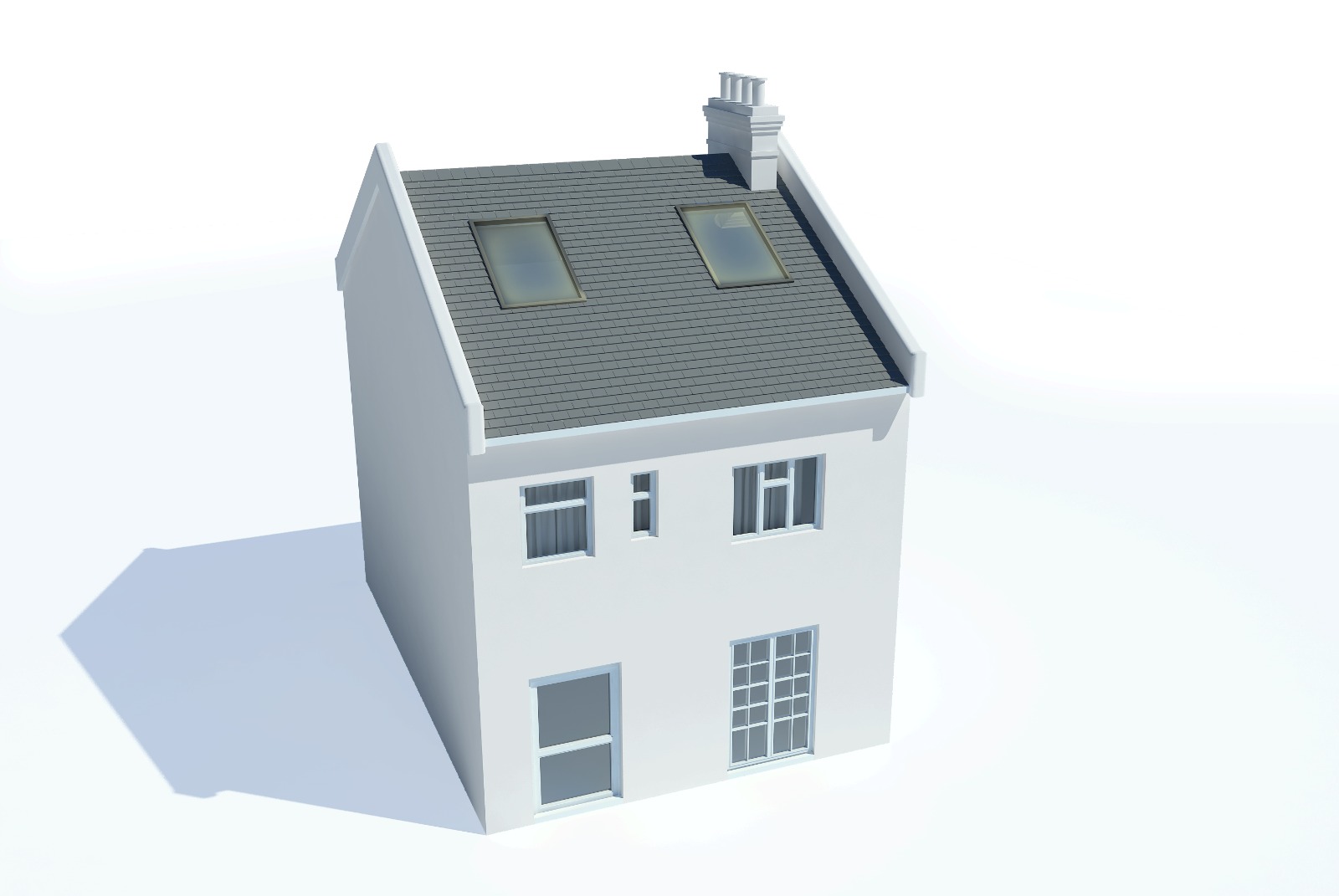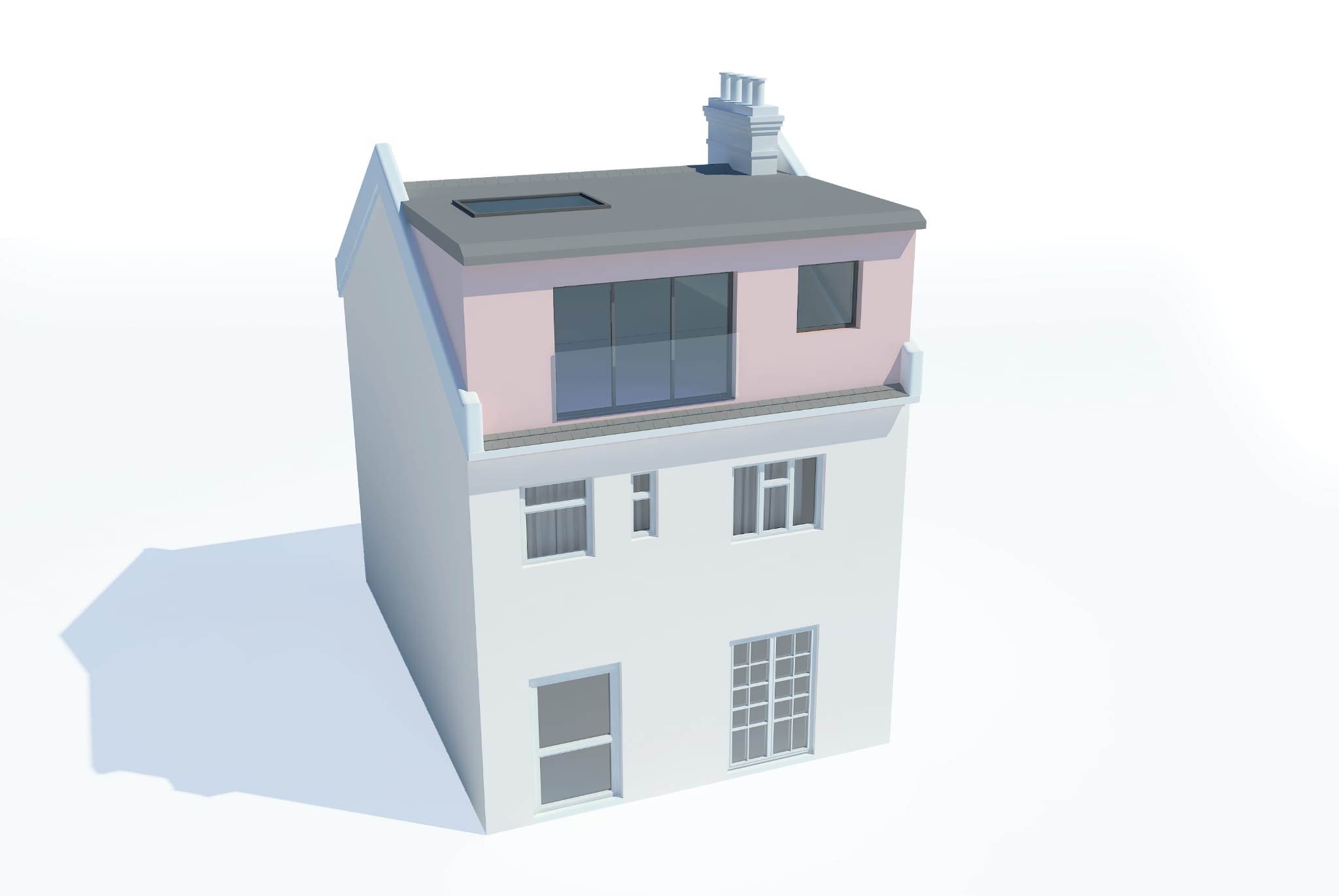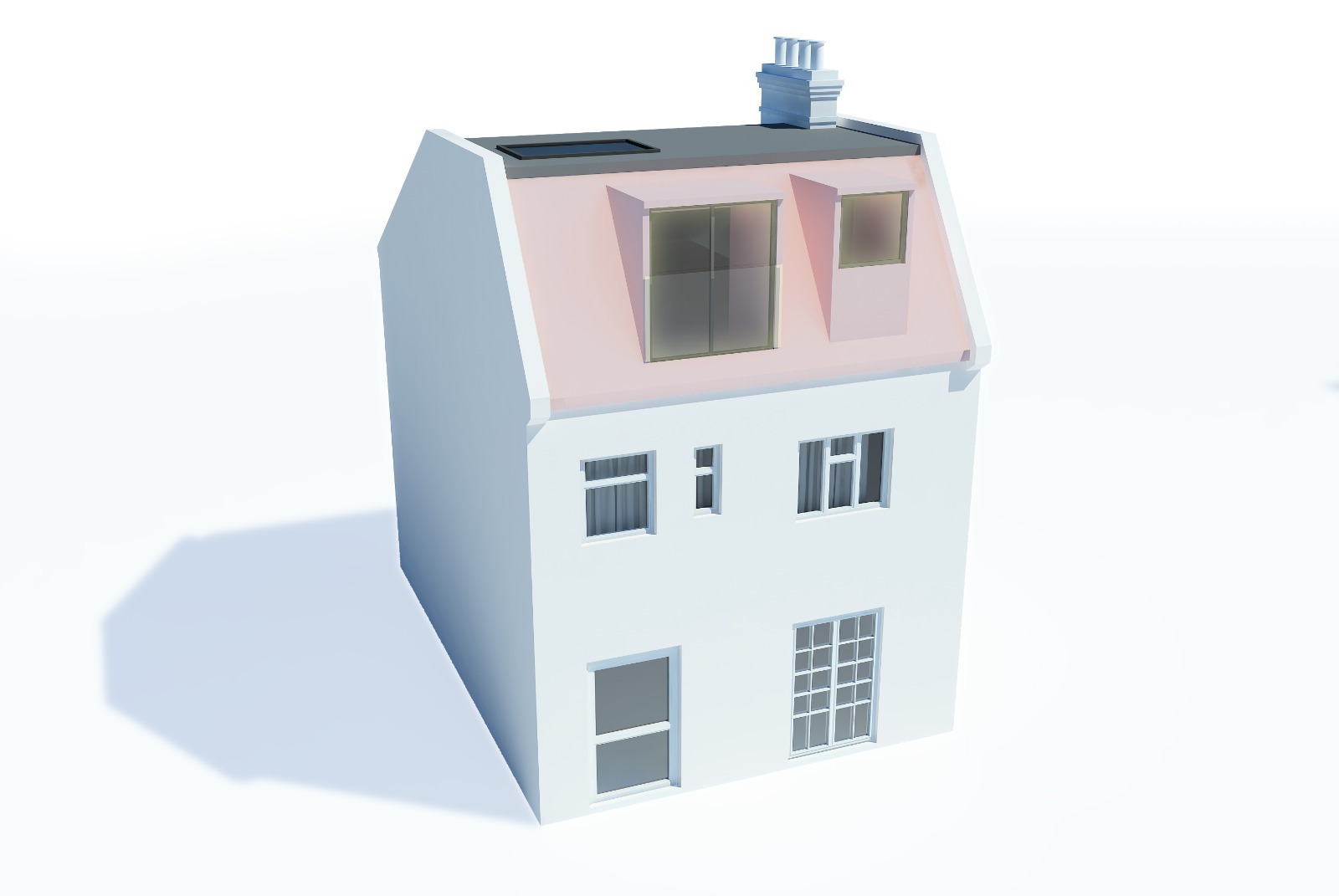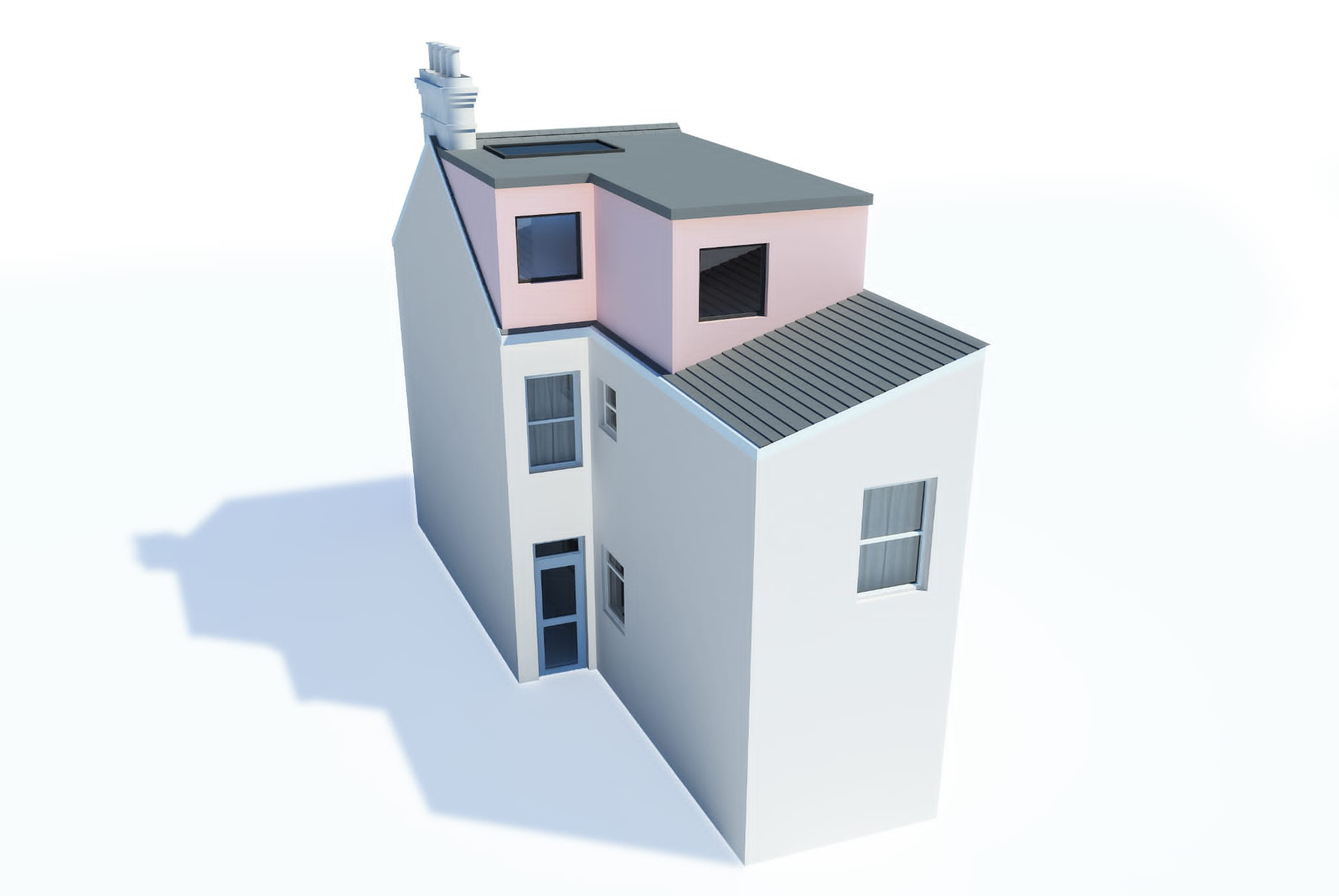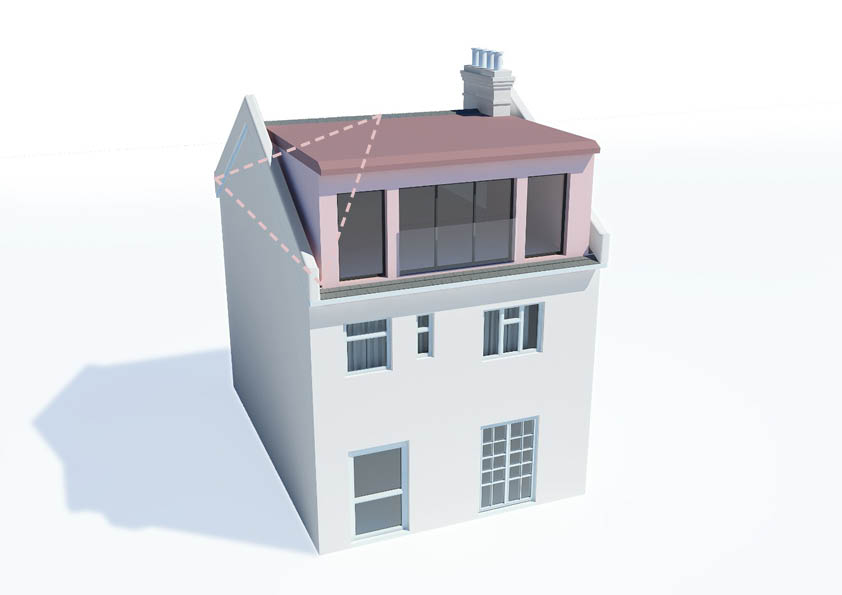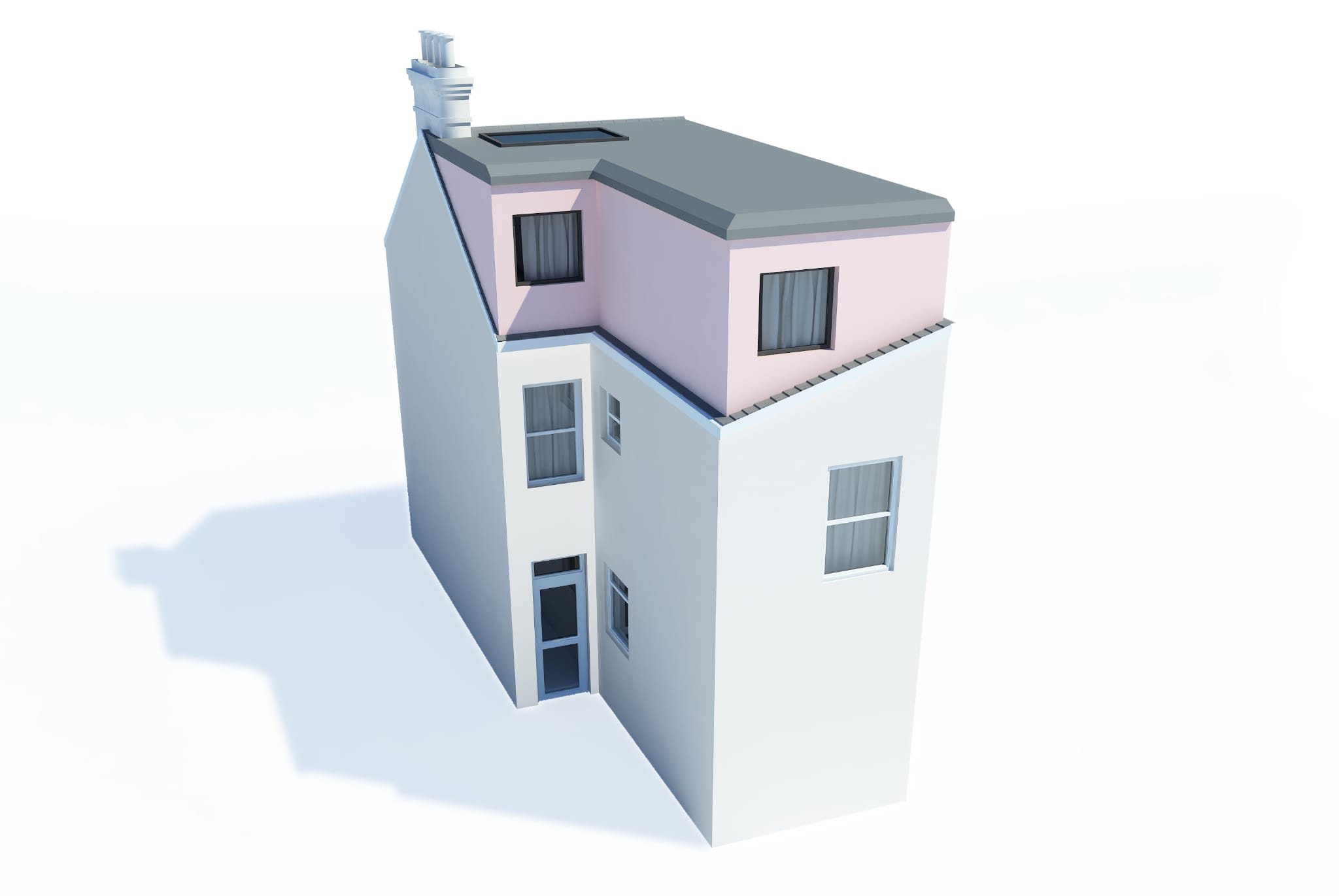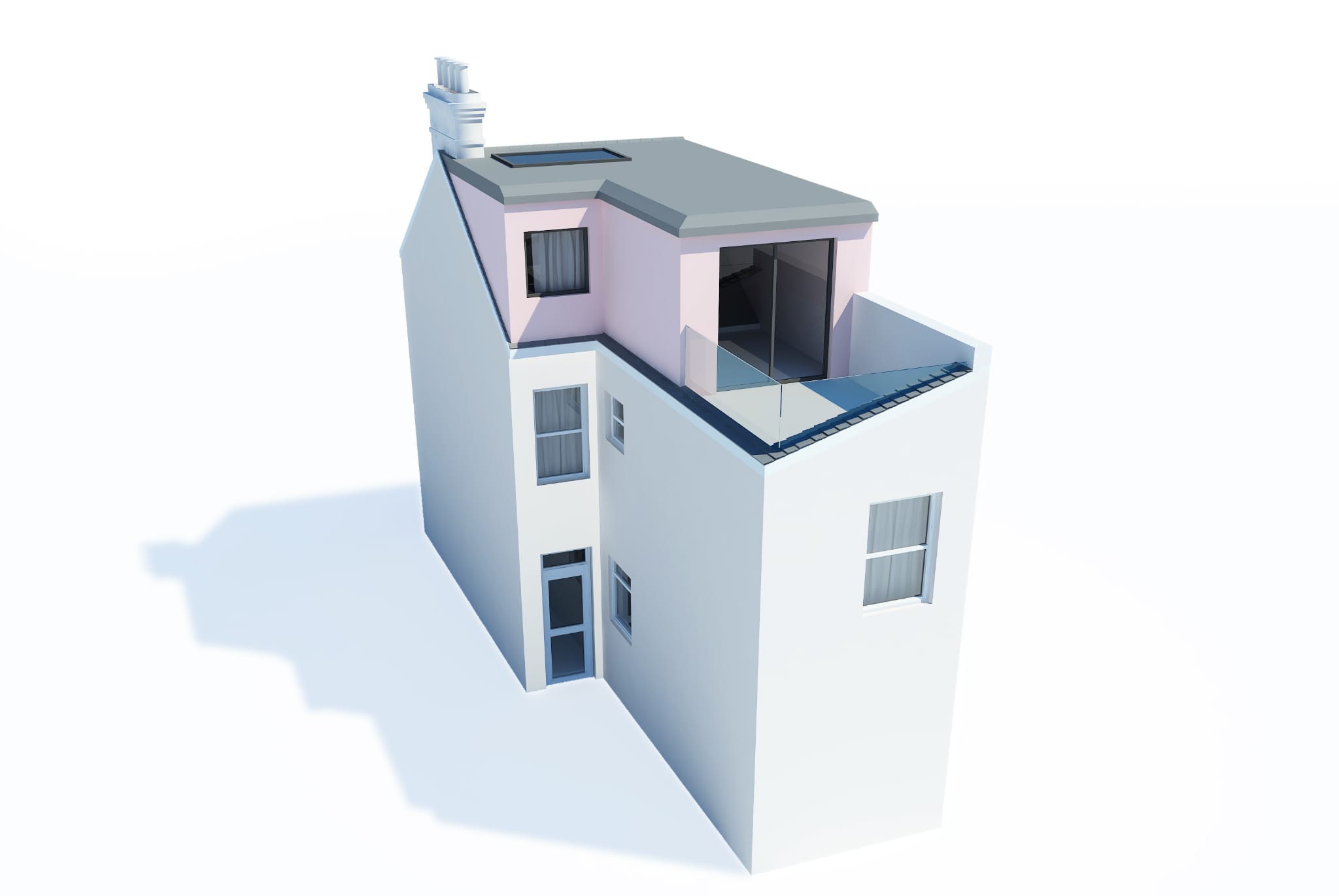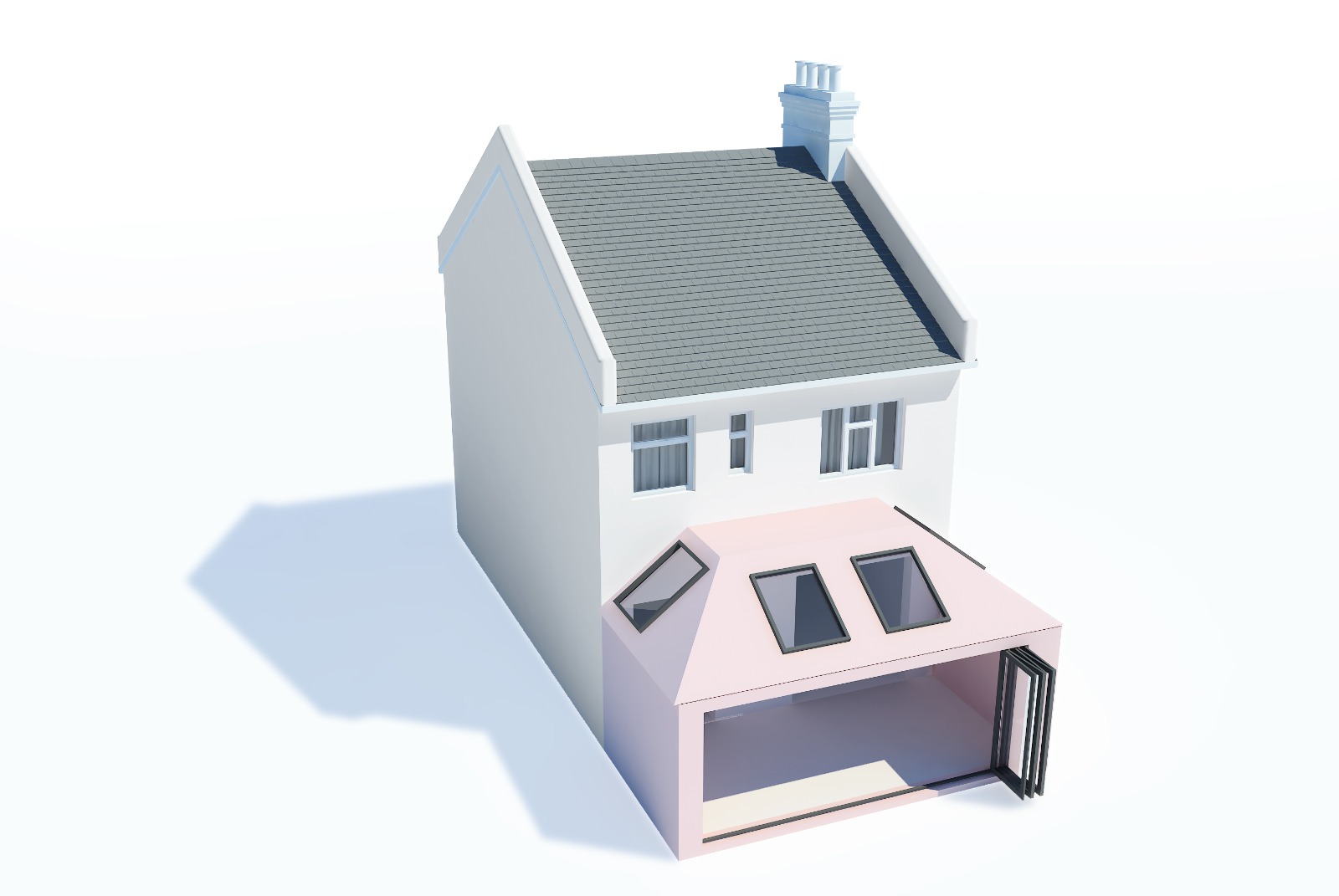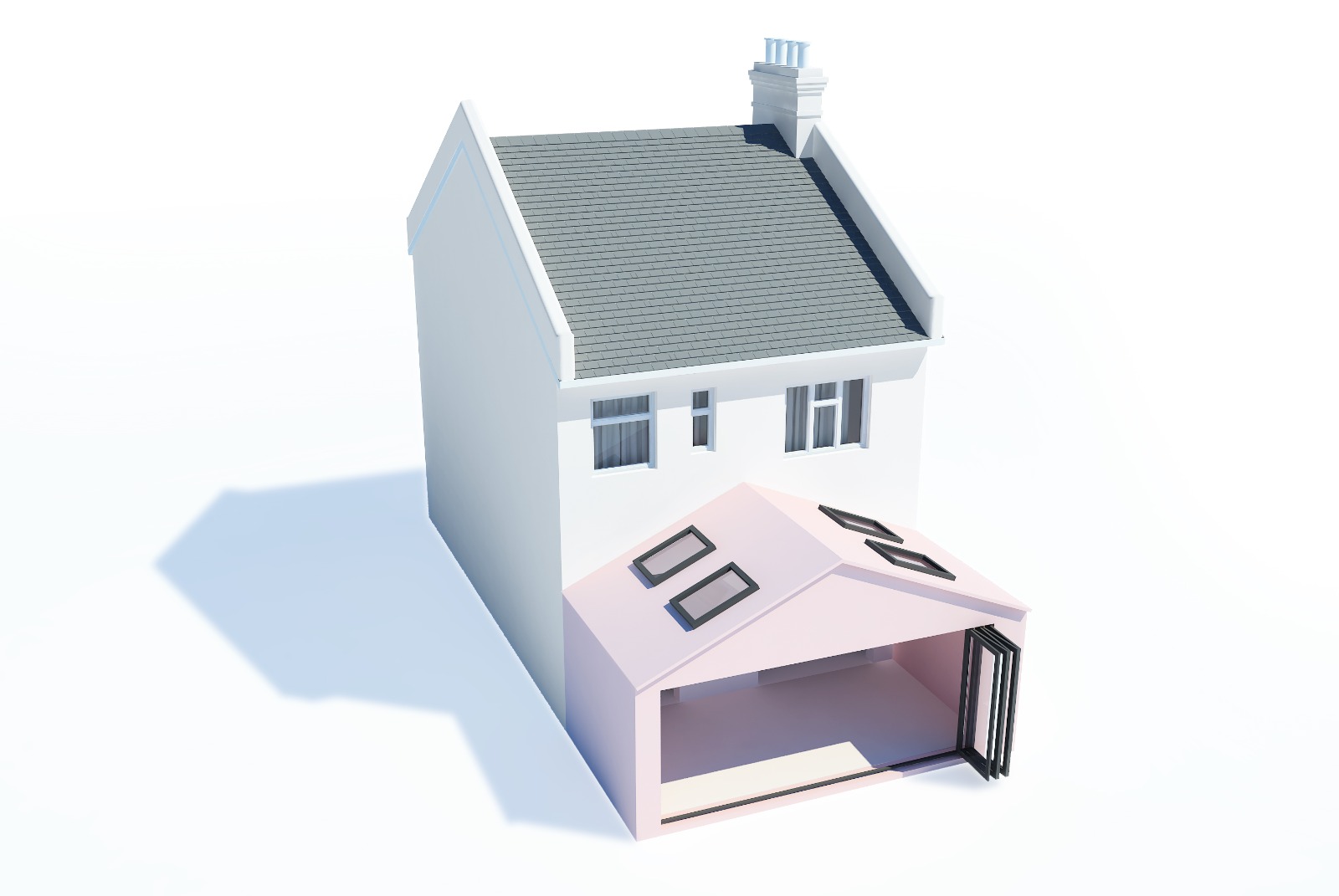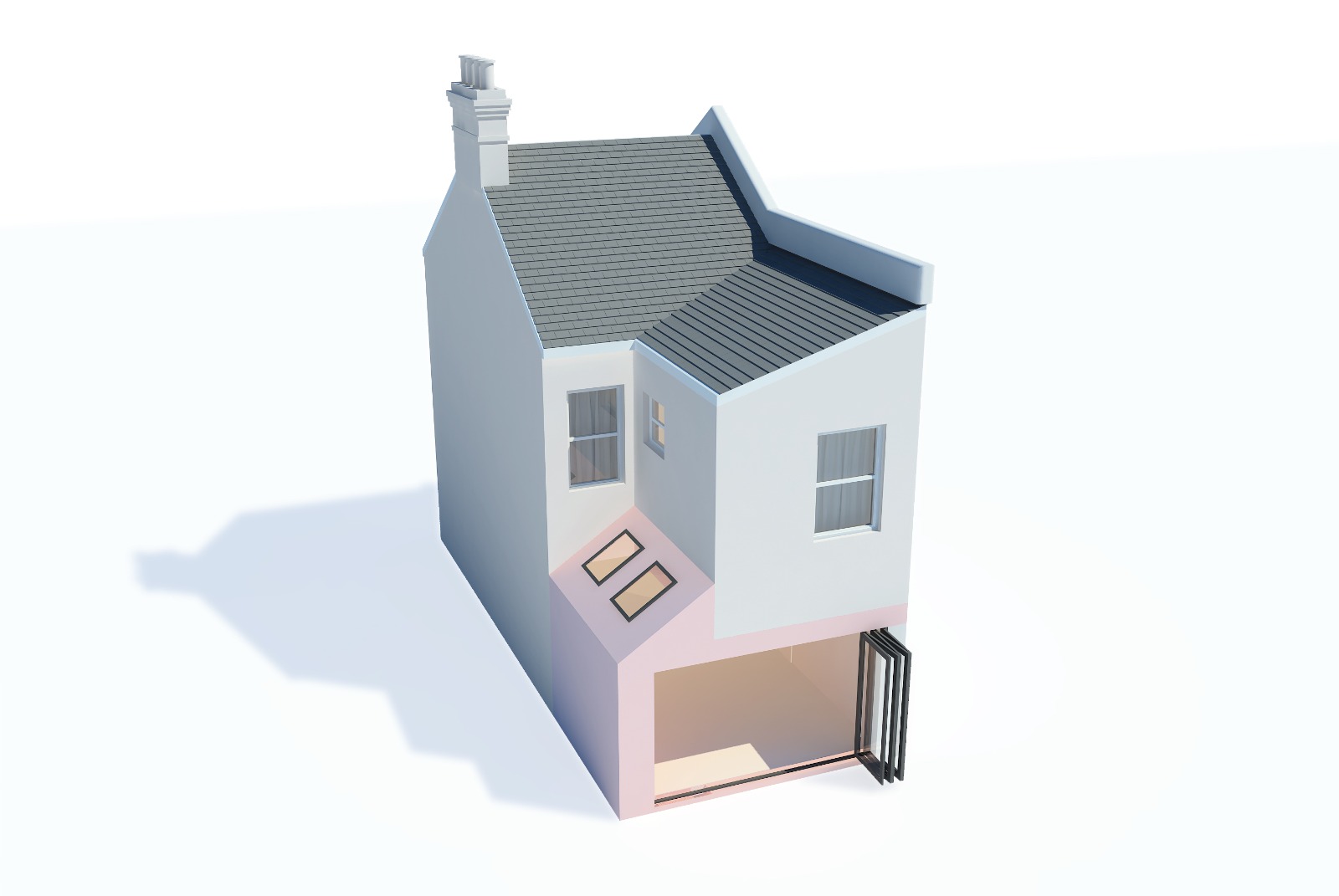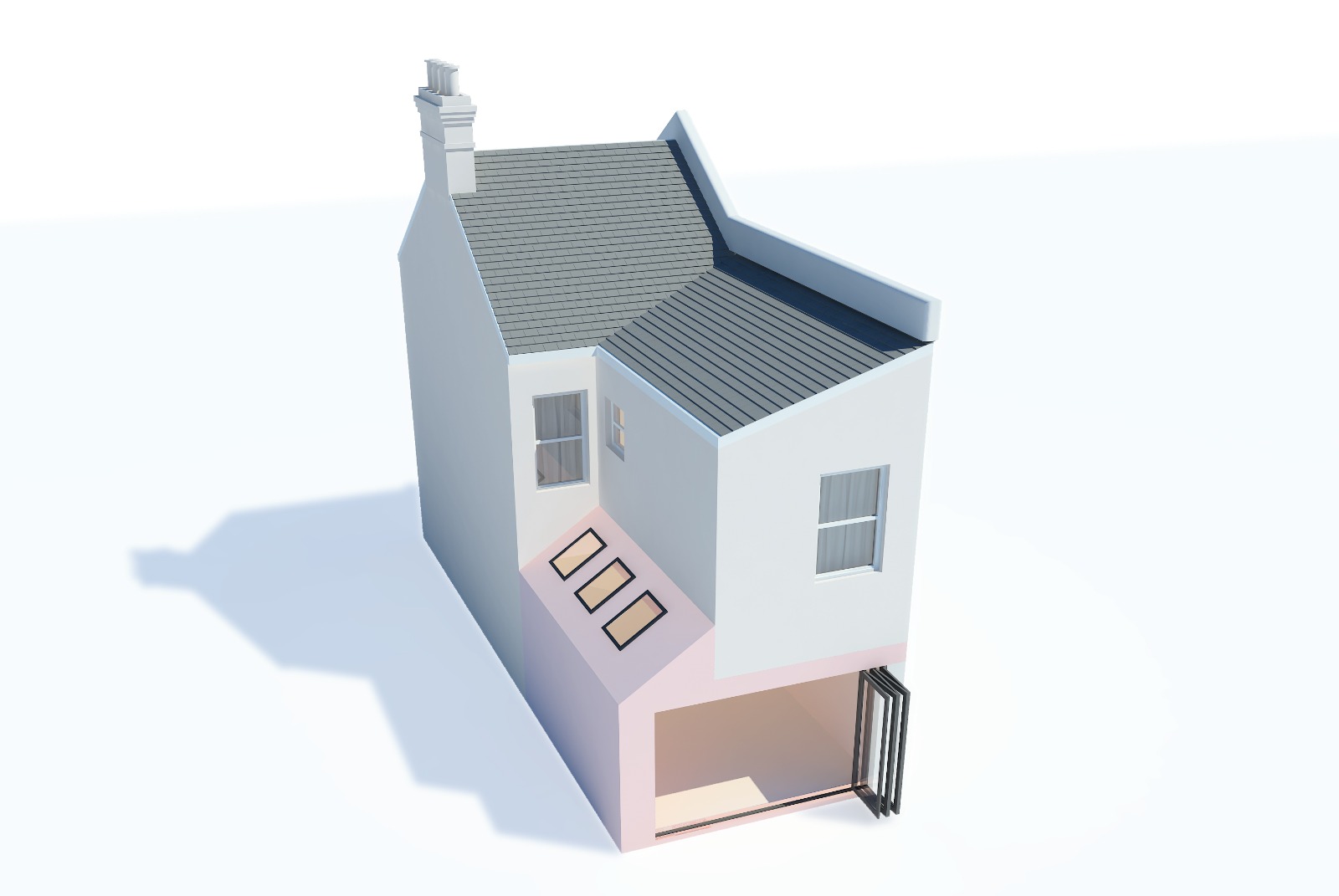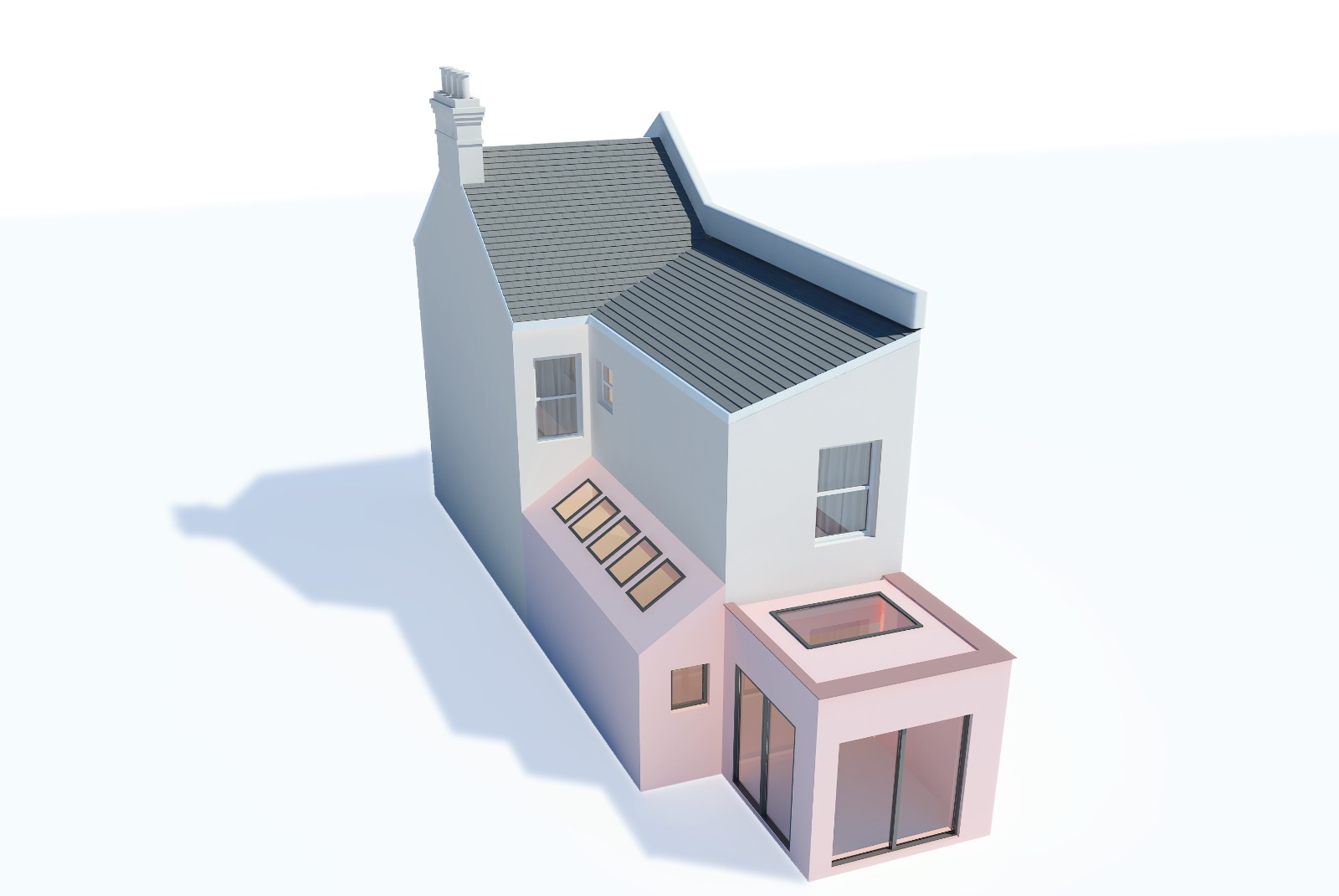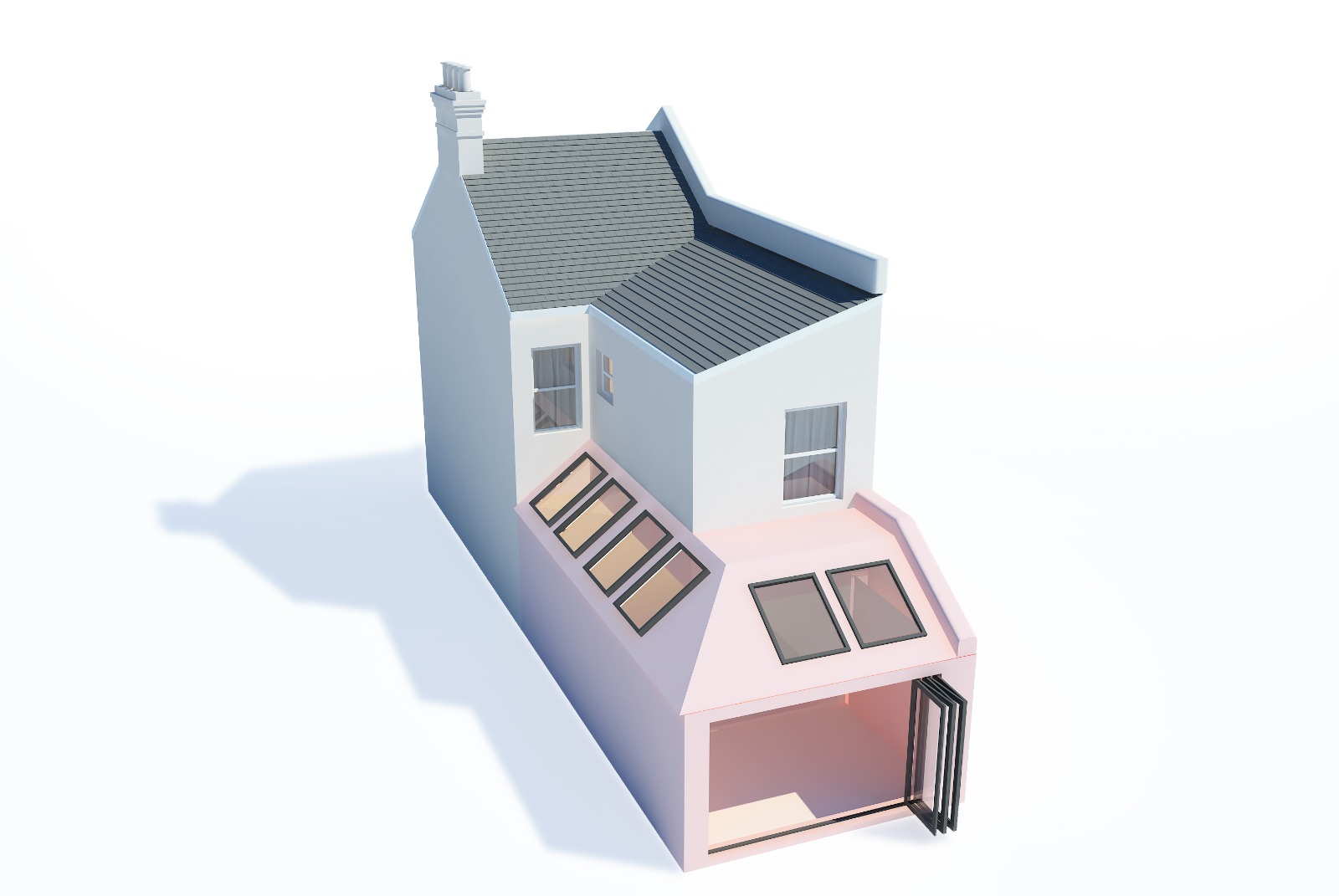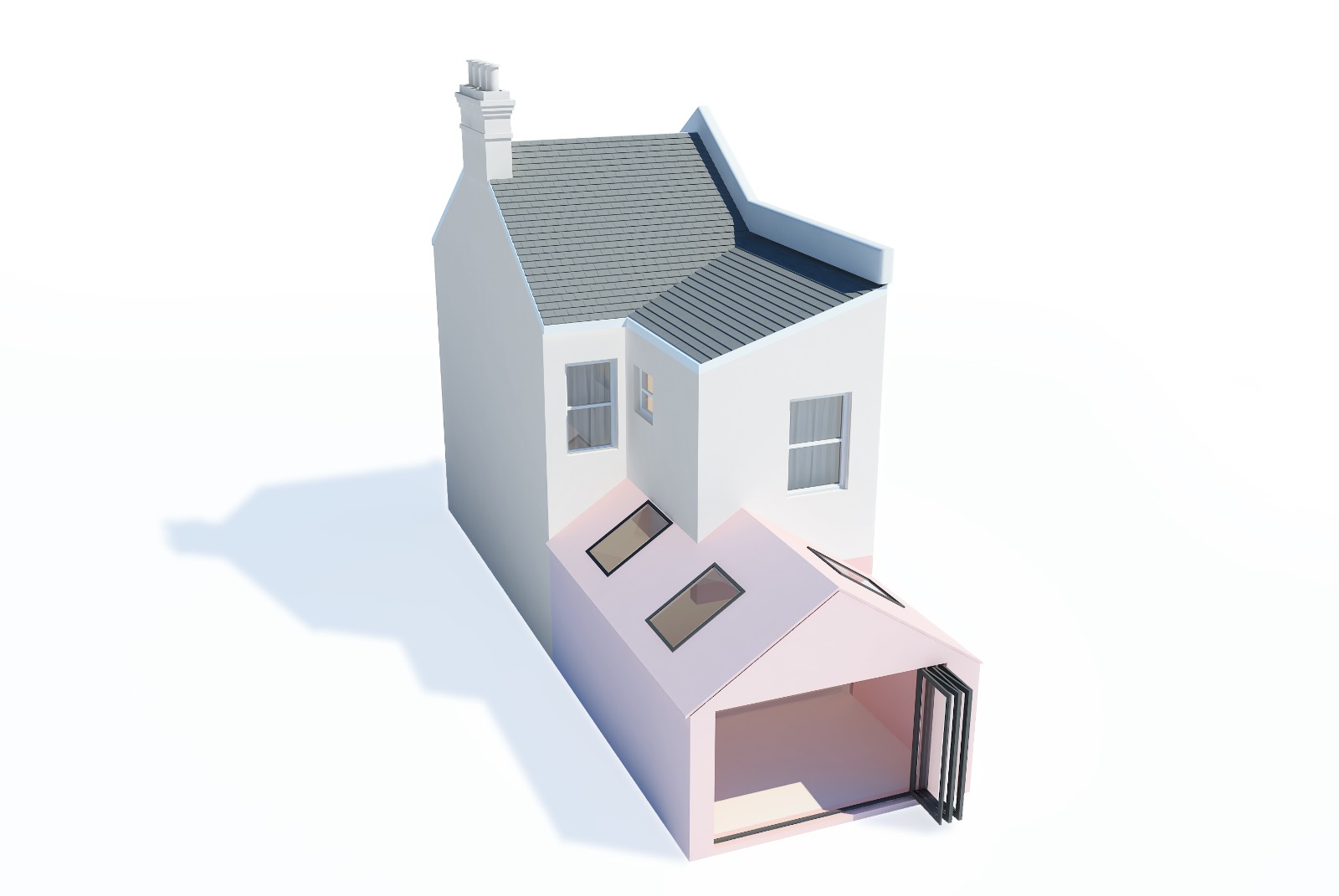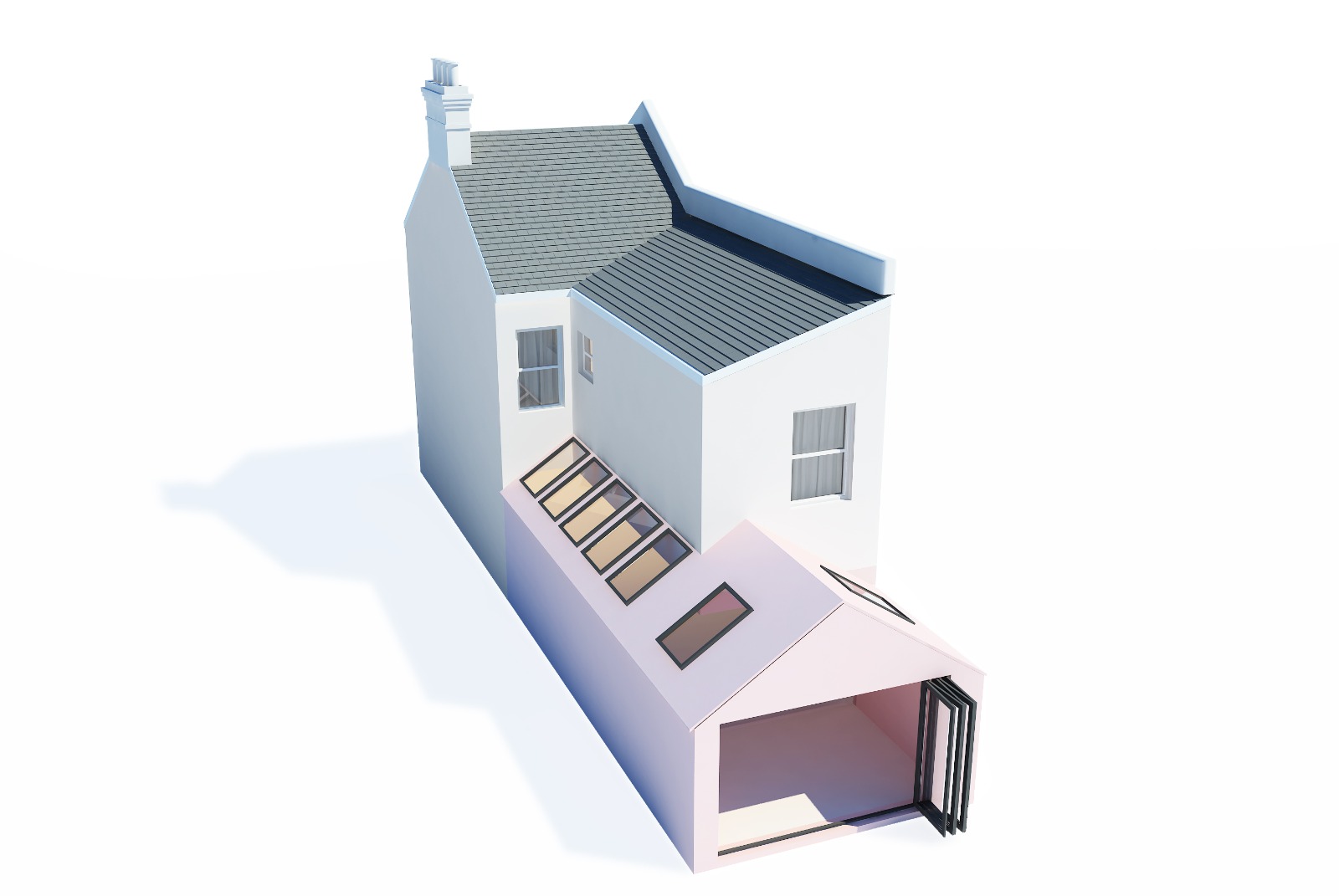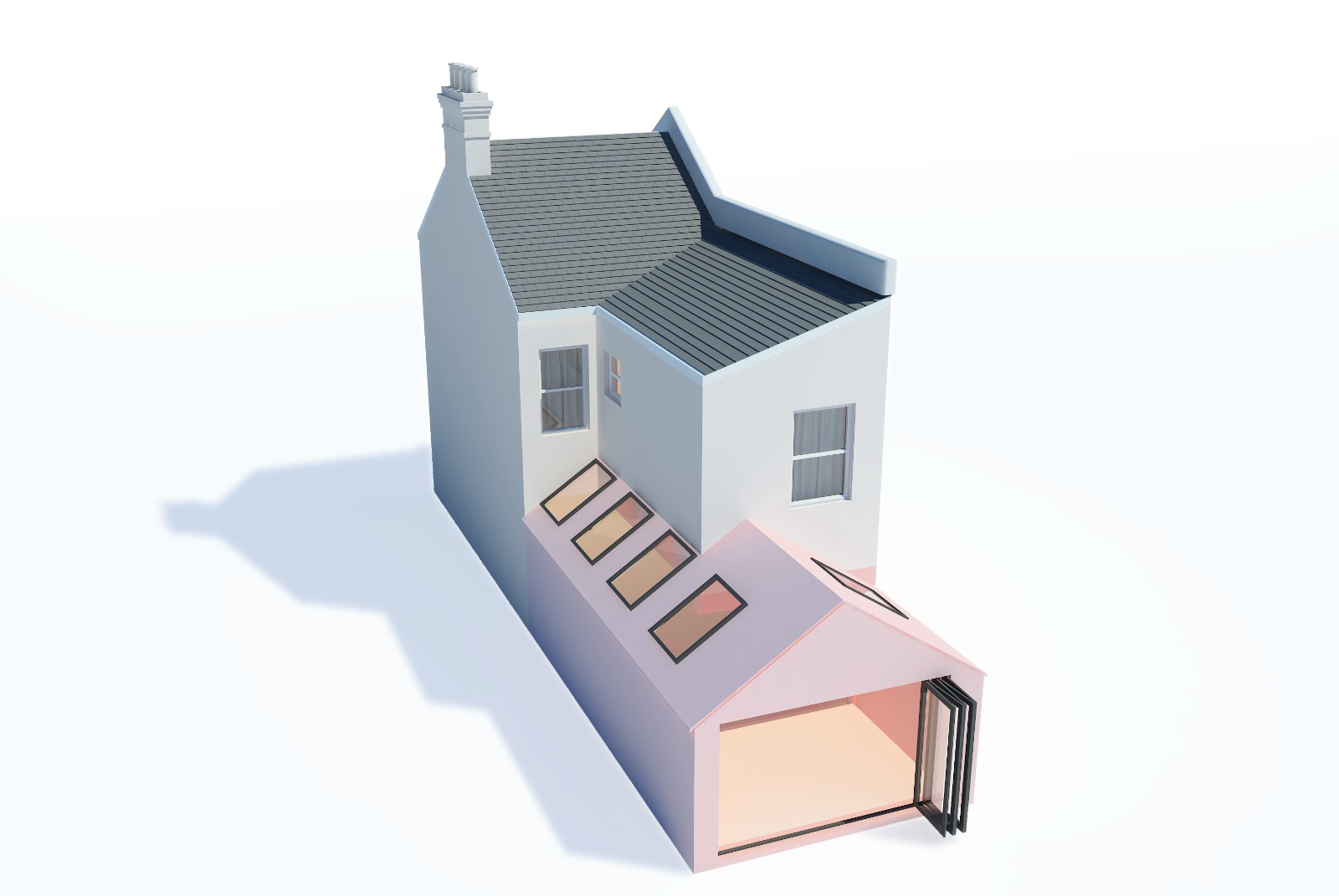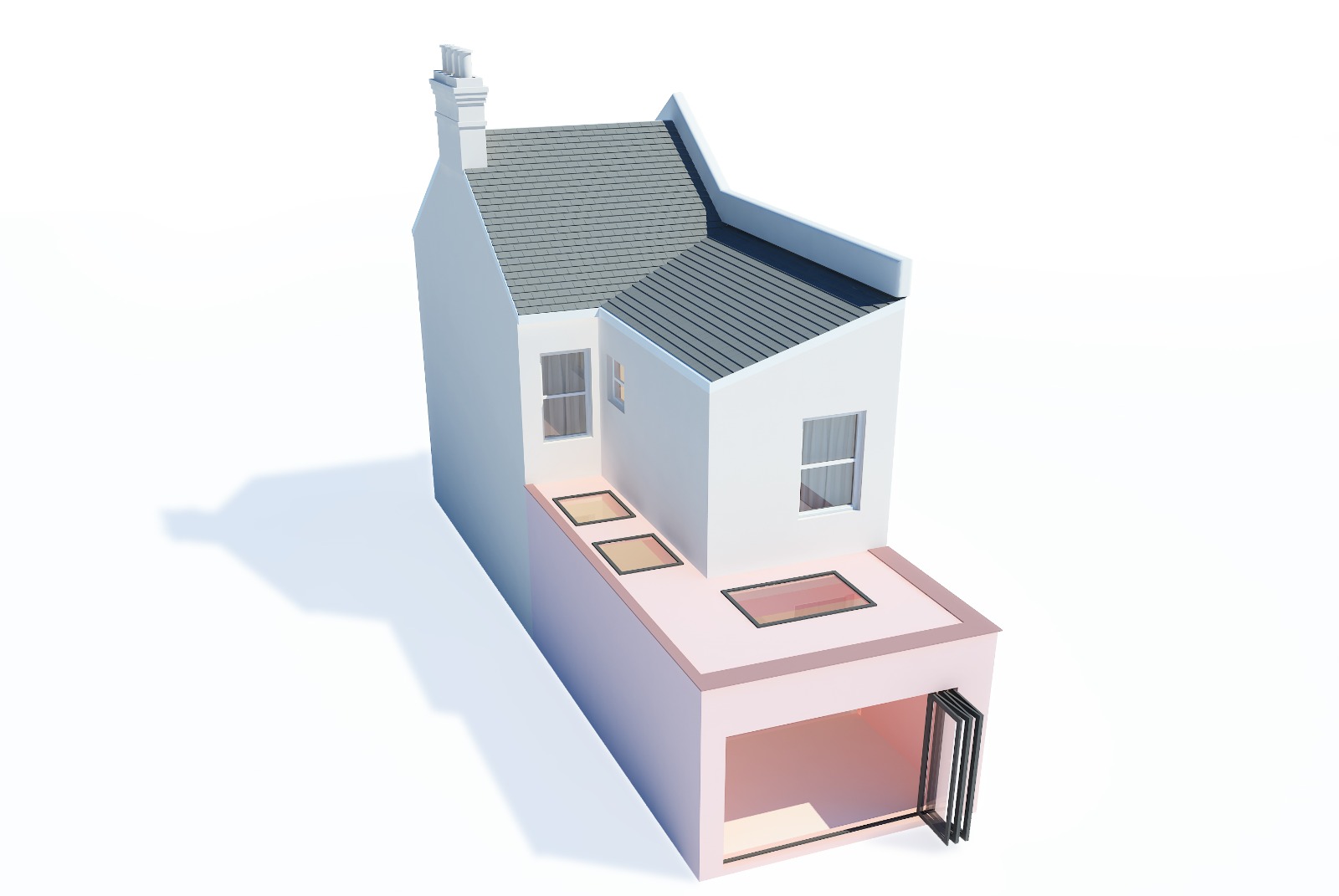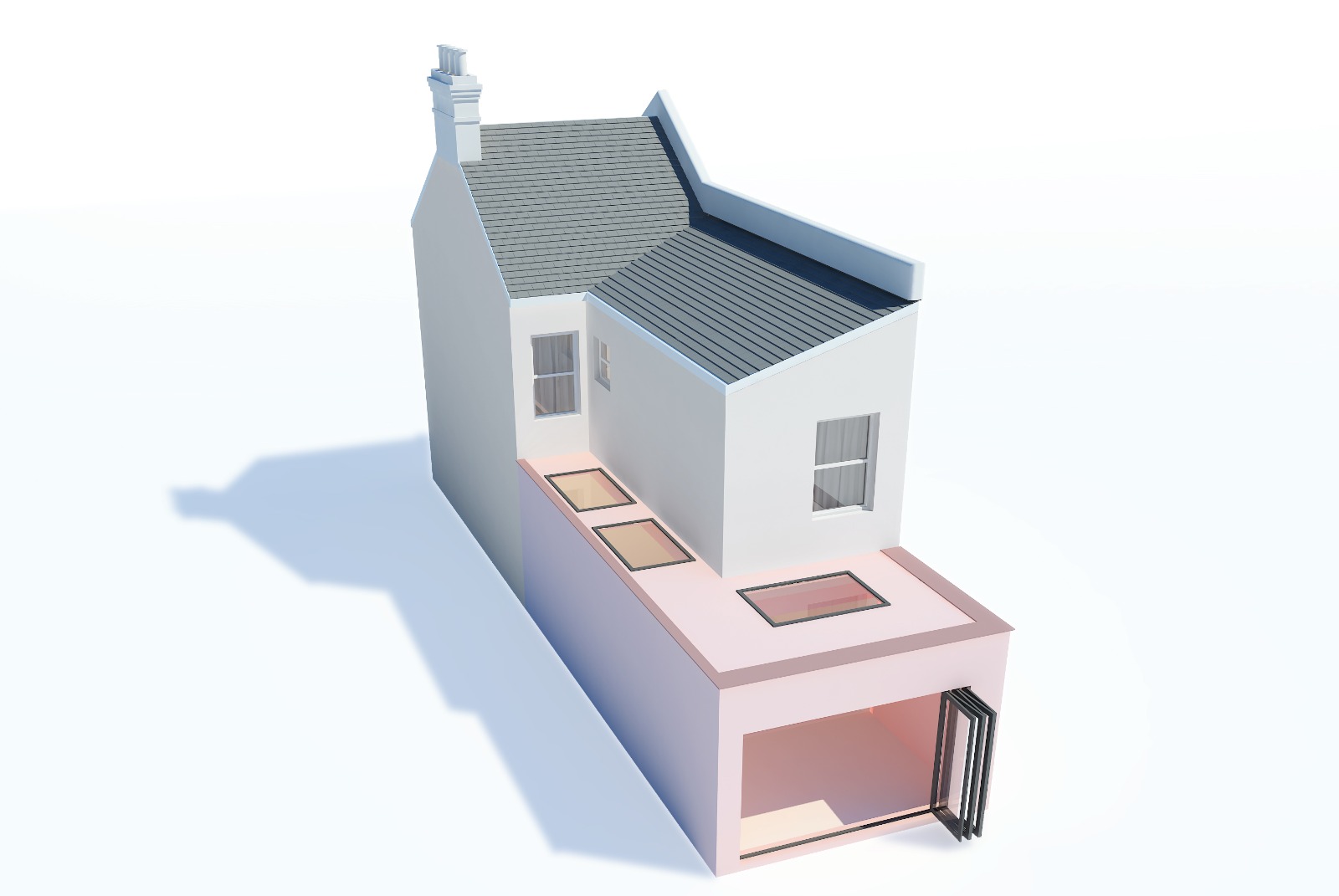House extensions are every homeowner’s go-to solution to increase the square footage of their homes without resorting to the incredibly expensive and inconvenient option of moving houses. And now? Home extensions got even more appealing.
Modular extensions offer homeowners the chance to design and create their dream extensions at a fraction of the cost of regular extensions. Built to specific designs, with excellent insulation, at an off-site location, and installed and connected to your existing home in less than 10 days!
All of which means that you can have a beautiful, bespoke home extension, that is cost-effective, and causes minimal disruption to your daily lives. It truly is the perfect way to add space, comfort, and value to your home.
A modular house extension, or a prefabricated extension, is basically a home extension that is built off-site.
This means that these extensions are designed and built in a factory or workshop, and then transported, assembled, and connected to the original house for a quick and simple build.
Modular extensions can be as varied as regular extensions with very few exceptions. They may be categorised into different types based on two main aspects. Namely: the location of the extension, and the materials utilised for their construction.
Though modular home extensions tend to favour rear-style extensions, side, side return, and double-storey extensions are also possible options. Simply put, every extension style can be customised and designed to suit almost any room requirement.
Another important aspect of prefabricated extensions is the materials used for its build. This is because the materials used for modular extensions can affect its design, cost, and even the need for planning permission.
Some common materials that can be used for prefab extensions include:
- Timber
- Steel
- Brick
- uPVC
Each material has its unique advantages and disadvantages based on its quality, durability, and cost. If the material used differs from that in the original house, then a movement gap has to be integrated in order to compensate for the different rates of expansion and contraction.
The requirement for planning permission for modular extensions is very similar to that of conventional extensions. This means that planning permission will be required for all extensions (modular or otherwise), that do not meet the criteria of permitted developments.
Therefore, any extension that:
- Is built on listed properties or those located in conservation areas,
- Is higher than the highest part of the original roof,
- Exceeds 25% of the total size of the original building,
- Is built with materials that are dissimilar in appearance to the materials used on the exterior of the original house, etc.
will require planning permission.
In addition to planning permission, building regulations approval and party wall agreements must also be considered to ensure that the modular extension meets all the building guidelines and standards.
Much like traditional extensions, modular extensions can be designed to create virtually any type of room based on the specific needs of homeowners.
Some of the most popular extension ideas for modular homes include:
- Kitchen extensions
- Dining rooms
- Conservatories
- Playrooms
- Home offices
- Guest bedrooms
- Bathrooms
- Store rooms
But really, the design and use of the newly-created space is only limited by your imagination!
One of the main reasons why modular home extensions are often preferred to brick-and-mortar extensions is because they are seen as much more cost-effective options to increase the living space of your home.
Naturally, the type of extension built is a huge contributing factor to the cost of the extension. For example, a simple home office is likely to cost less than a bathroom or kitchen extension which require connections to plumbing as well as additional fittings.
Some of the other factors which affect the cost of a modular extension include:
- The size of the extension
- Design
- Groundwork
- Building materials
- Utility connections
- Fittings and fixtures
- Specialists’ fees, etc.
As a result, modular extensions in London may range in cost from £25,000 to £55,000.
Modular home extensions are a no-brainer. They are easy on the wallet, quick to construct and install, can be customised to your specific requirements, come backed by warranties, and increase the space and value of your home. And Good Design and Build are the perfect partners to design and deliver these dream extensions.
Being the leading extension experts in London, we have decades of experience, unmatched expertise, and incredible skill that enable us to create the ultimate modular extensions.
Our team of experts comprise of the best architects, builders, technicians, and project managers. This means that every aspect of the build and installation is carefully overseen by us to provide a seamless, stress-free experience for all our clients.
This includes:
- Surveying the location
- Carefully designing the proposed extension
- Applying for and securing the requisite planning permission and building regulations approval
- Contractual work
- Daily on-site project management
- Foundational work
- Installation
So, choosing Good Design and Build for your modular extension not only ensures exceptional extensions of the highest standard, but an unforgettable experience of comfort and trust.
How we deliver projects
Our process is simple and divided into two distinct phases with separate contracts: Design and Build. As a client you only commit to one phase at a time depending on what stage of the process you are in. Each phase consists of three stages as described below.
1. Design
This is the kick-off point for your project. We carry out a complete architectural measured survey of the property. This allows us to create accurate CAD design drawings. This is followed by a design meeting to start discussing your ideas in more detail.
2. Planning
At this stage we finalise the designs with you and start preparing planning applications as needed. We place a high priority on ensuring that plans, designs and schedules are all based on a thorough and detailed understanding of planning guidelines. We co-ordinate with local authorities until the decision is made, and the planning approval is secured.
3. Technical
Once the planning consent is secured, we translate the design drawings into more detailed technical drawings for the purposes of building control and construction. This also includes specifications and structural calculations. At this stage, we will also submit to you our ‘no obligation’ quote for the build phase.
4. Pre-build
90% of our clients decide to stick with us after the design phase is completed. Once the build contract is signed, we kick off the process by making sure all the pre-build processes are complete. These include assistance with party wall agreements, Thames Water build over agreement, submitting building control application, and preparing method statements etc as needed. This stage ends with a pre-start meeting with your foreman before the actual build begins.
5. Build
One of our foremen will be dedicated to your project and will be on-site to manage everyday works. Our project managers will be overseeing the works to make sure they are completed to high standards, within your budget and on time. Throughout the process we will keep you updated with the progress and coordinate the works with third parties such as kitchen or flooring suppliers. We will also advise and guide you to choose any suppliers if needed.
6. Handover
As the build draws to finish, we will help to iron out any ‘snags’ to make sure everything is completed to your satisfaction. We will put together all necessary certificates such as gas, electricity and building control completion along with warranties for glazing, boiler etc. At the final completion meeting, we will hand you these documents, together with the keys to your house. Needless to say, you can contact us any time after this, if you want us to look at something.
This is the kick-off point for your project. We carry out a complete architectural measured survey of the property. This allows us to create accurate CAD design drawings. This is followed by a design meeting to start discussing your ideas in more detail.
At this stage we finalise the designs with you and start preparing planning applications as needed. We place a high priority on ensuring that plans, designs and schedules are all based on a thorough and detailed understanding of planning guidelines. We co-ordinate with local authorities until the decision is made, and the planning approval is secured.
Once the planning consent is secured, we translate the design drawings into more detailed technical drawings for the purposes of building control and construction. This also includes specifications and structural calculations. At this stage, we will also submit to you our ‘no obligation’ quote for the build phase.
90% of our clients decide to stick with us after the design phase is completed. Once the build contract is signed, we kick off the process by making sure all the pre-build processes are complete. These include assistance with party wall agreements, Thames Water build over agreement, submitting building control application, and preparing method statements etc as needed. This stage ends with a pre-start meeting with your foreman before the actual build begins.
One of our foremen will be dedicated to your project and will be on-site to manage everyday works. Our project managers will be overseeing the works to make sure they are completed to high standards, within your budget and on time. Throughout the process we will keep you updated with the progress and coordinate the works with third parties such as kitchen or flooring suppliers. We will also advise and guide you to choose any suppliers if needed.
As the build draws to finish, we will help to iron out any ‘snags’ to make sure everything is completed to your satisfaction. We will put together all necessary certificates such as gas, electricity and building control completion along with warranties for glazing, boiler etc. At the final completion meeting, we will hand you these documents, together with the keys to your house. Needless to say, you can contact us any time after this, if you want us to look at something.
Featured Projects
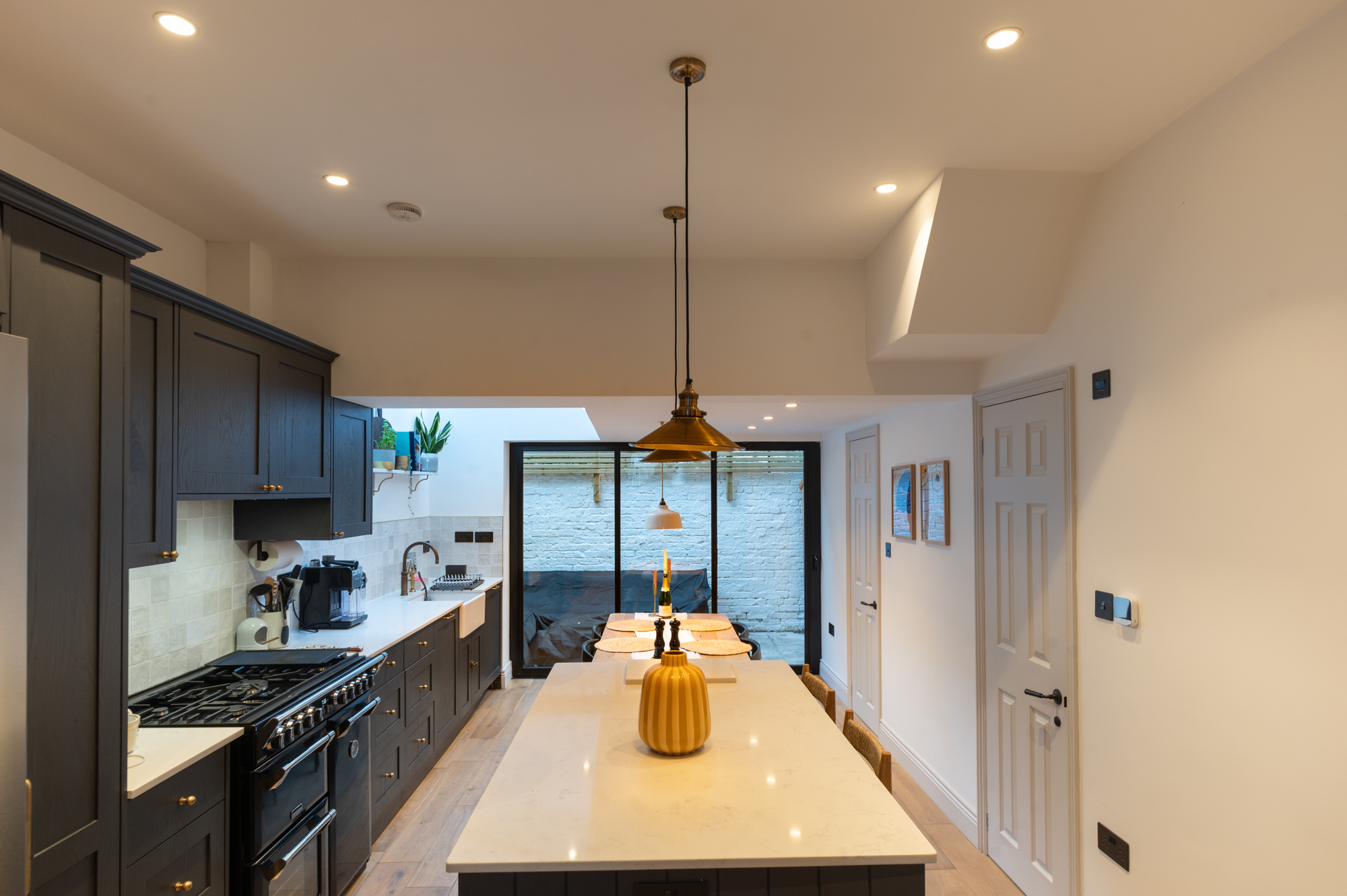
Fulham
Orbain Road SW6 7JZ
This project was completed in 2023 and the approximate budget was £101,000.
Learn more
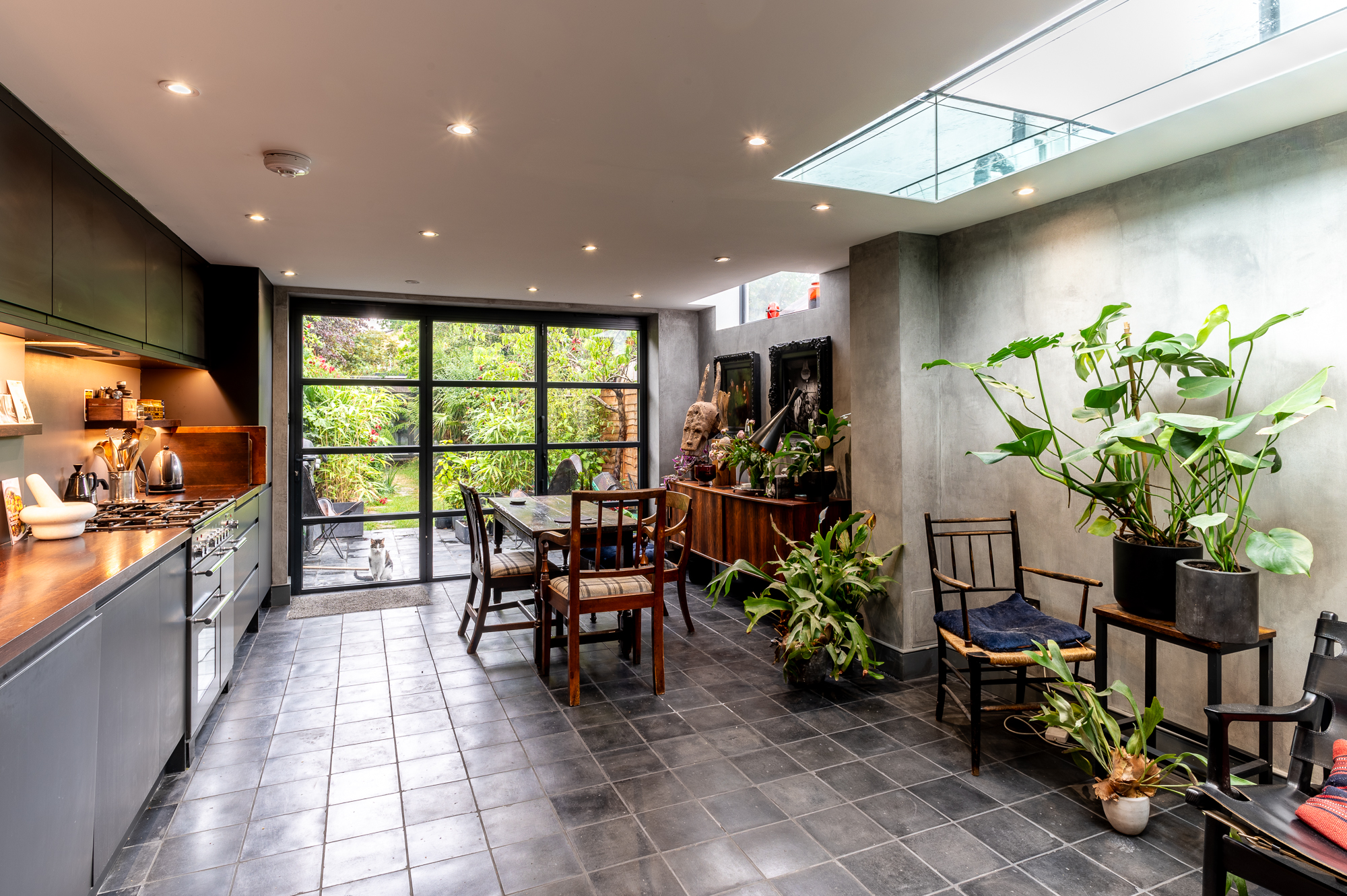
Lambeth
Hetherington Road SW4
We completed this stunning project for our client Angus in Lambeth.
Learn more
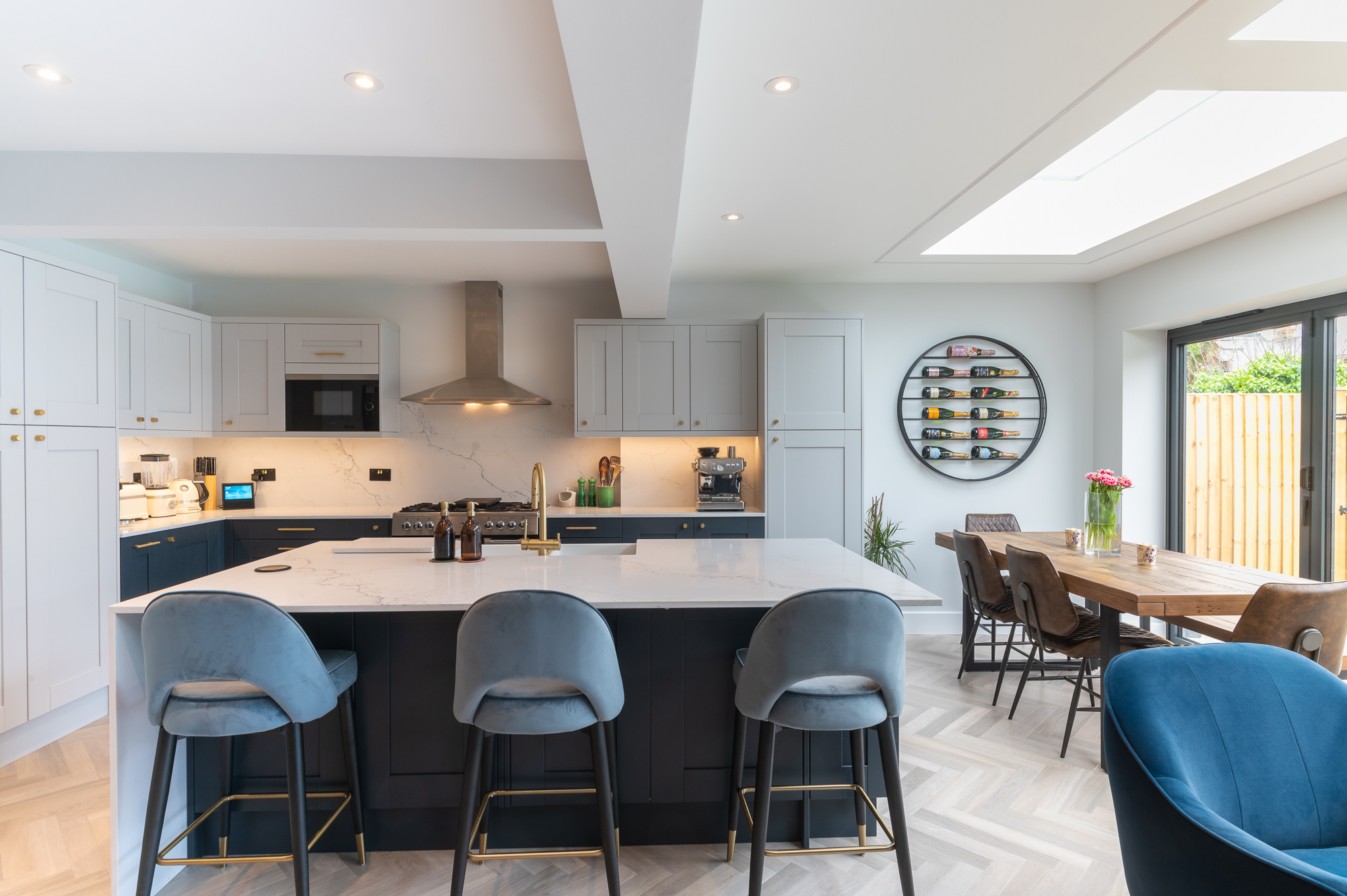
Teddington
Station Road SW4 7PA
We completed this exciting project for our clients on Station Road, a quaint residential area in the heart of Teddington.
Learn more

Leyton
Windsor Road E10
We completed this kitchen extension on Windsor Road, a charming residential street nestled in the heart of Leyton.
Learn more
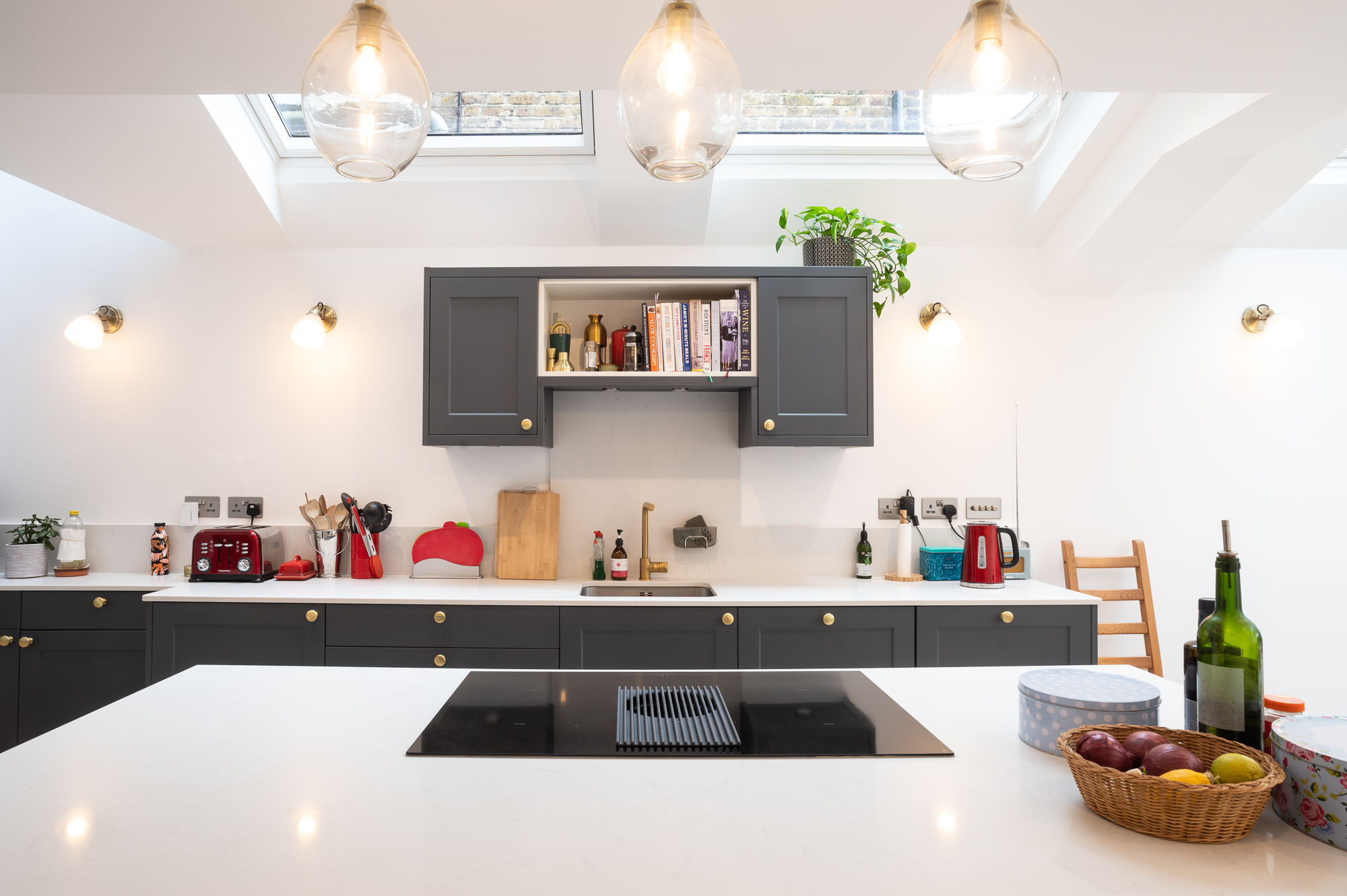
Clapham
Hydethorpe Road SW12 0JF
We did this kitchen extension project for our clients in Hydethorpe Road SW12.
Learn more

Fulham
Orbain Road SW6 7JZ
This project was completed in 2023 and the approximate budget was £101,000.
Learn more

Lambeth
Hetherington Road SW4
We completed this stunning project for our client Angus in Lambeth.
Learn more

Teddington
Station Road SW4 7PA
We completed this exciting project for our clients on Station Road, a quaint residential area in the heart of Teddington.
Learn more

Leyton
Windsor Road E10
We completed this kitchen extension on Windsor Road, a charming residential street nestled in the heart of Leyton.
Learn more

Clapham
Hydethorpe Road SW12 0JF
We did this kitchen extension project for our clients in Hydethorpe Road SW12.
Learn more
What Our Clients Say
Build a Quote!
Let's get started with building your own bespoke quote for your dream extension. Tell us as much in detail as possible to get most accurate price.
Get StartedBuild a Quote!
Let's get started with building your own bespoke quote for your dream extension. Tell us as much in detail as possible to get most accurate price.
Get Started







